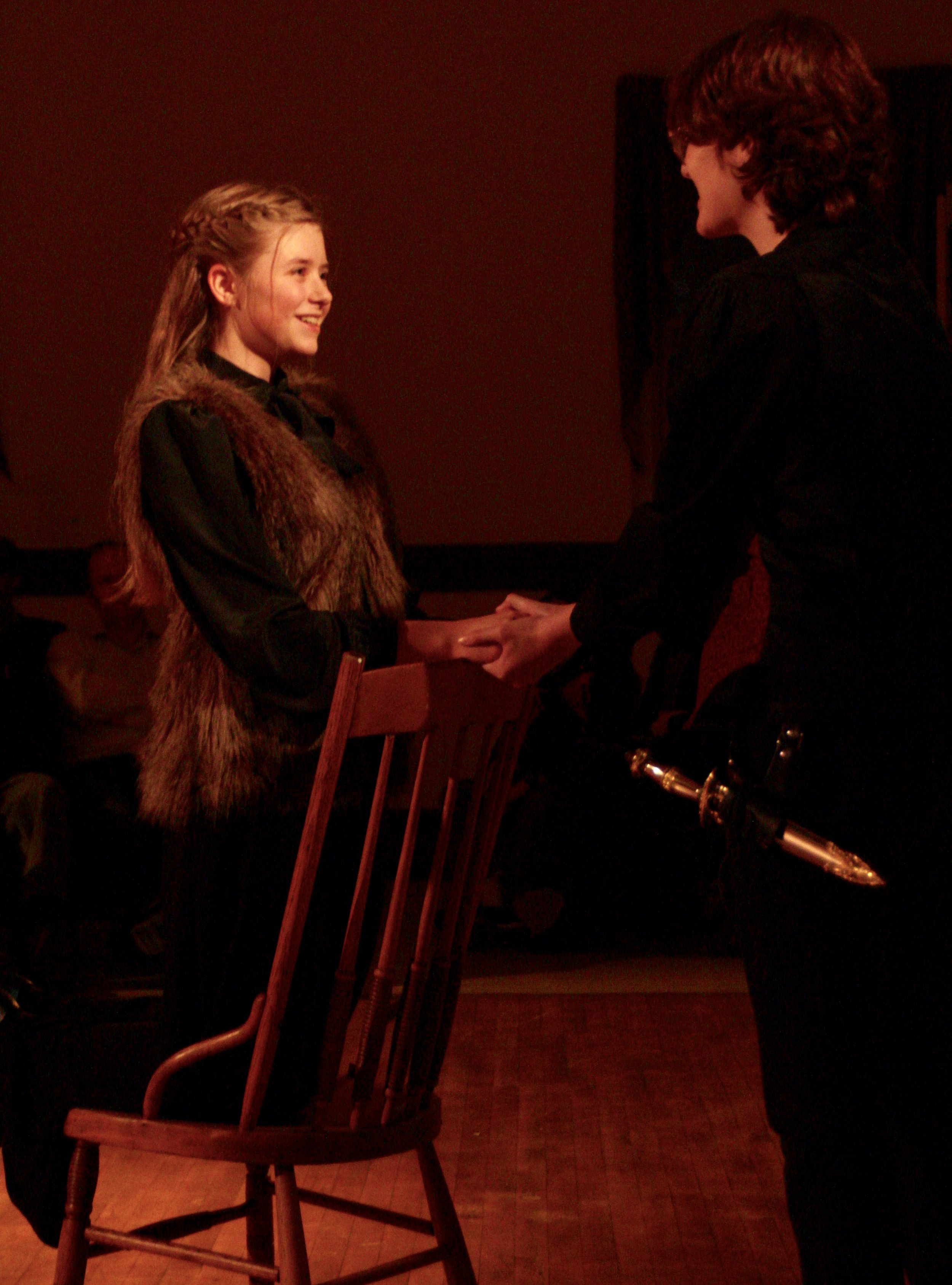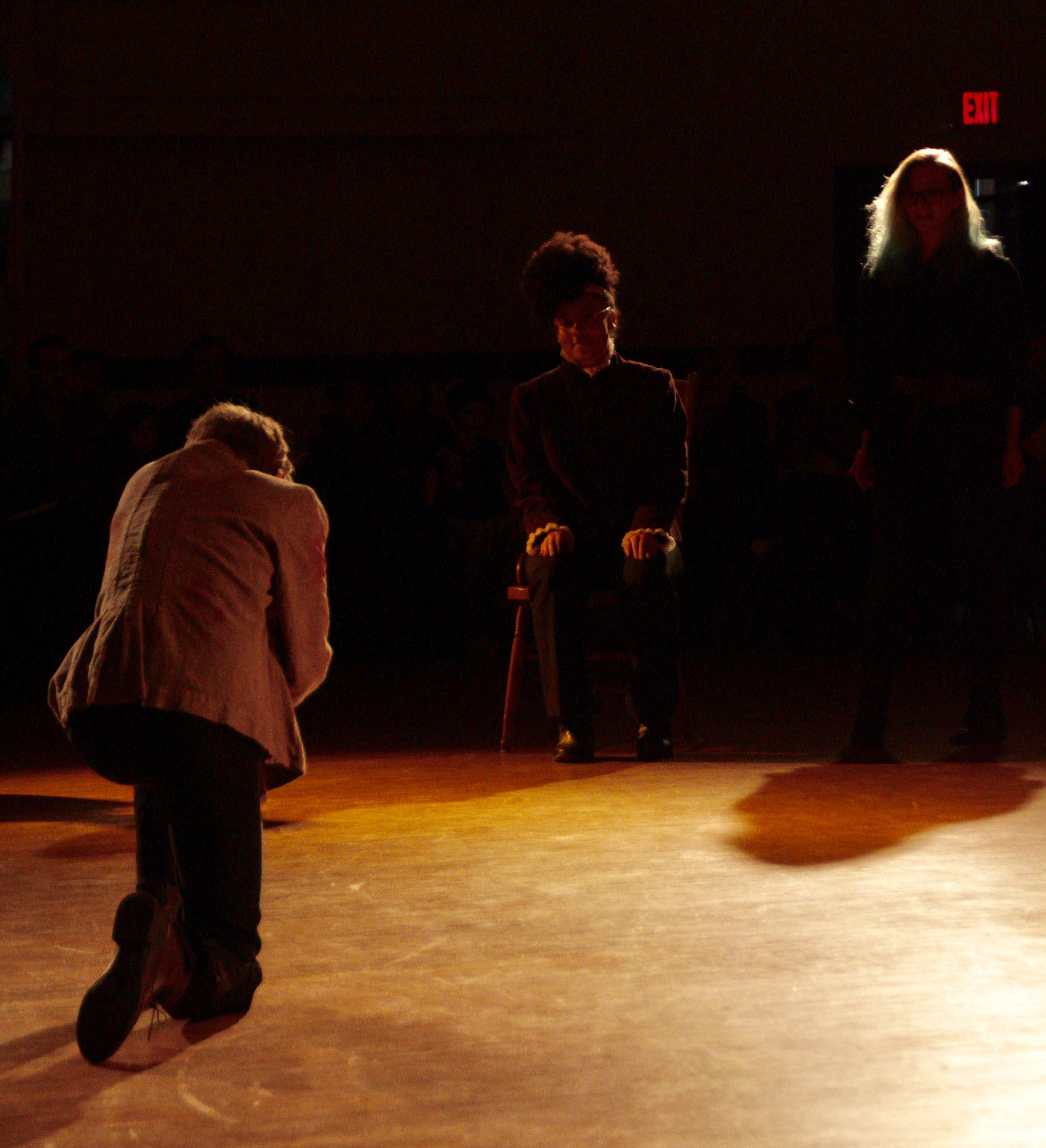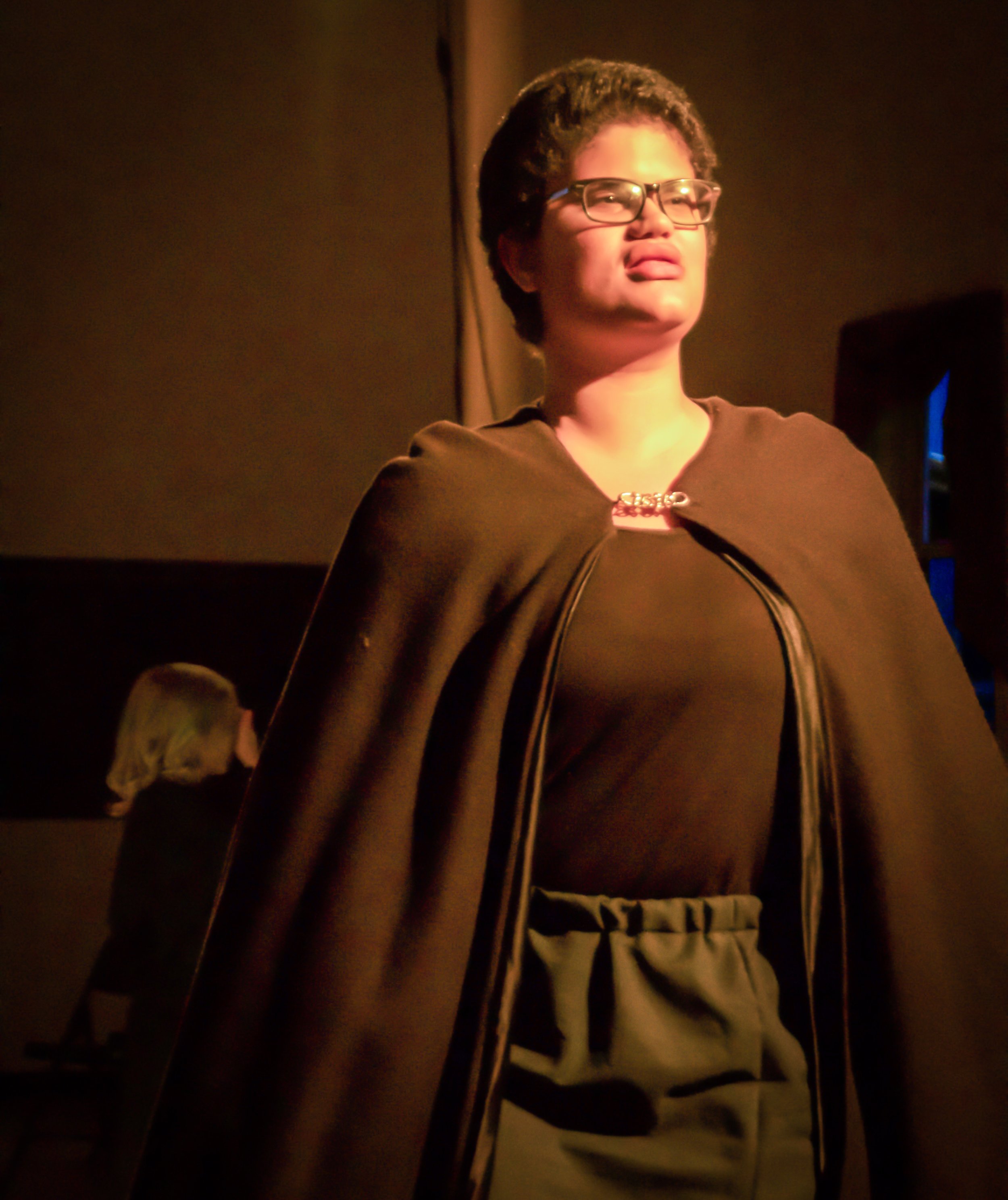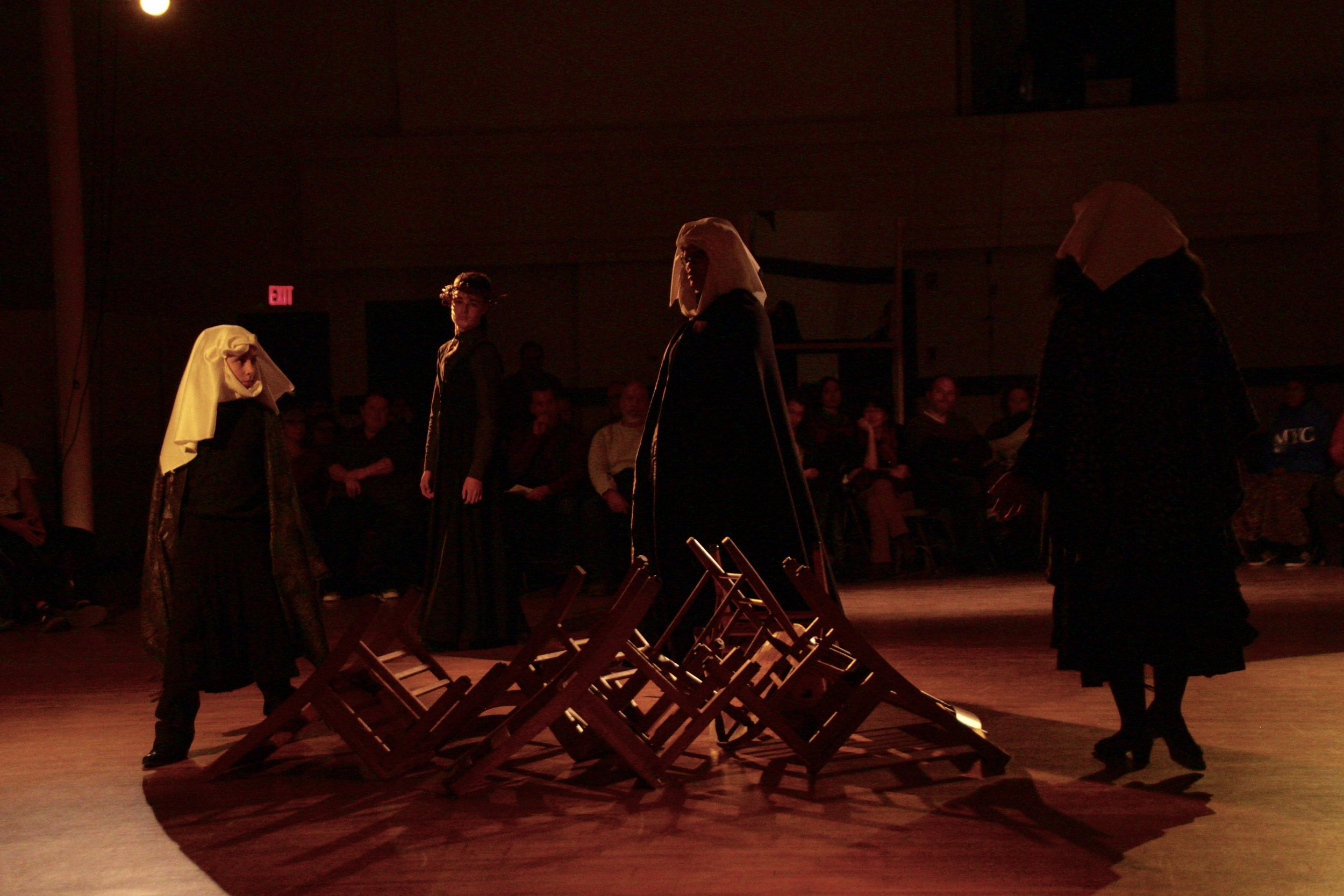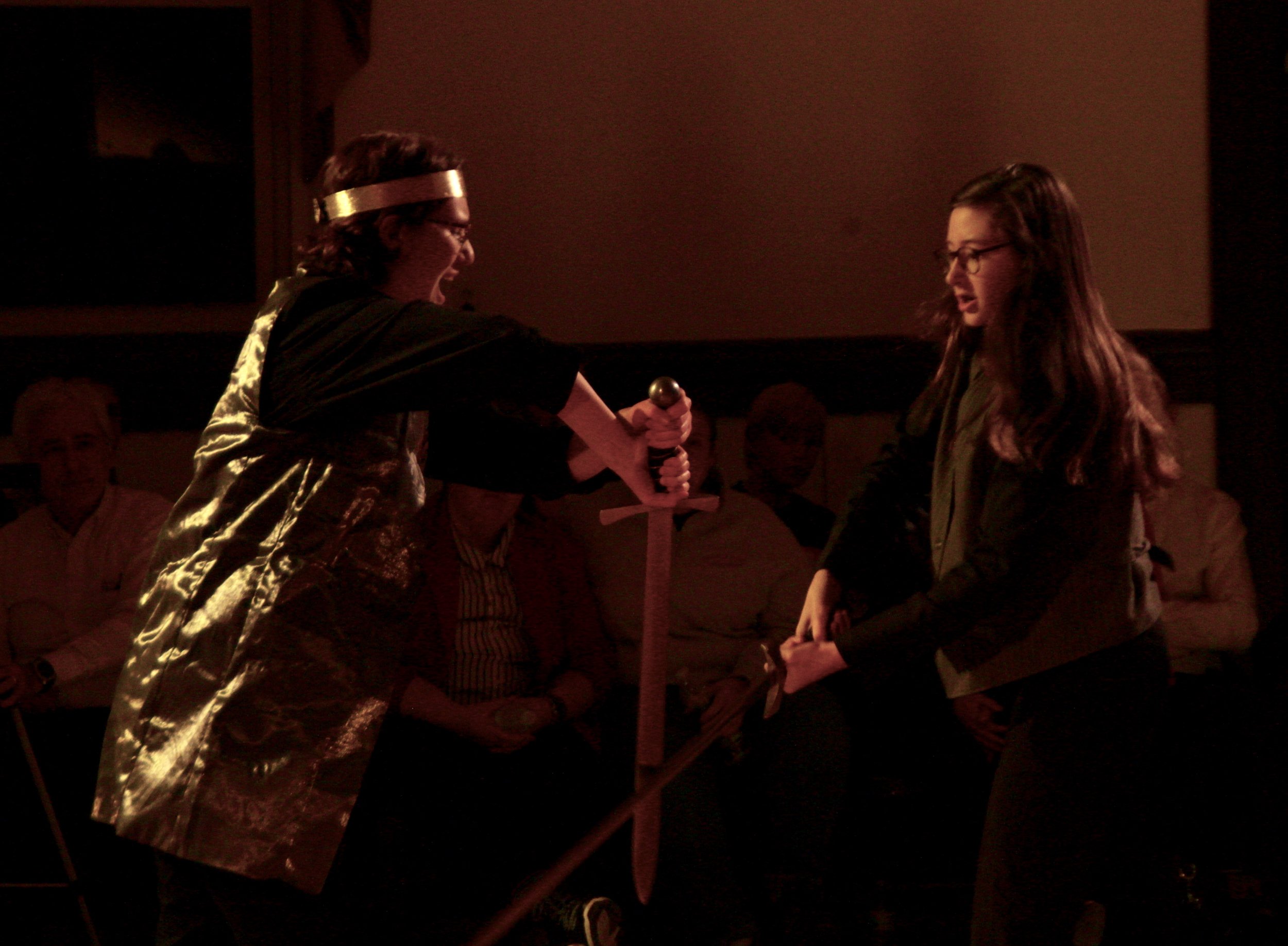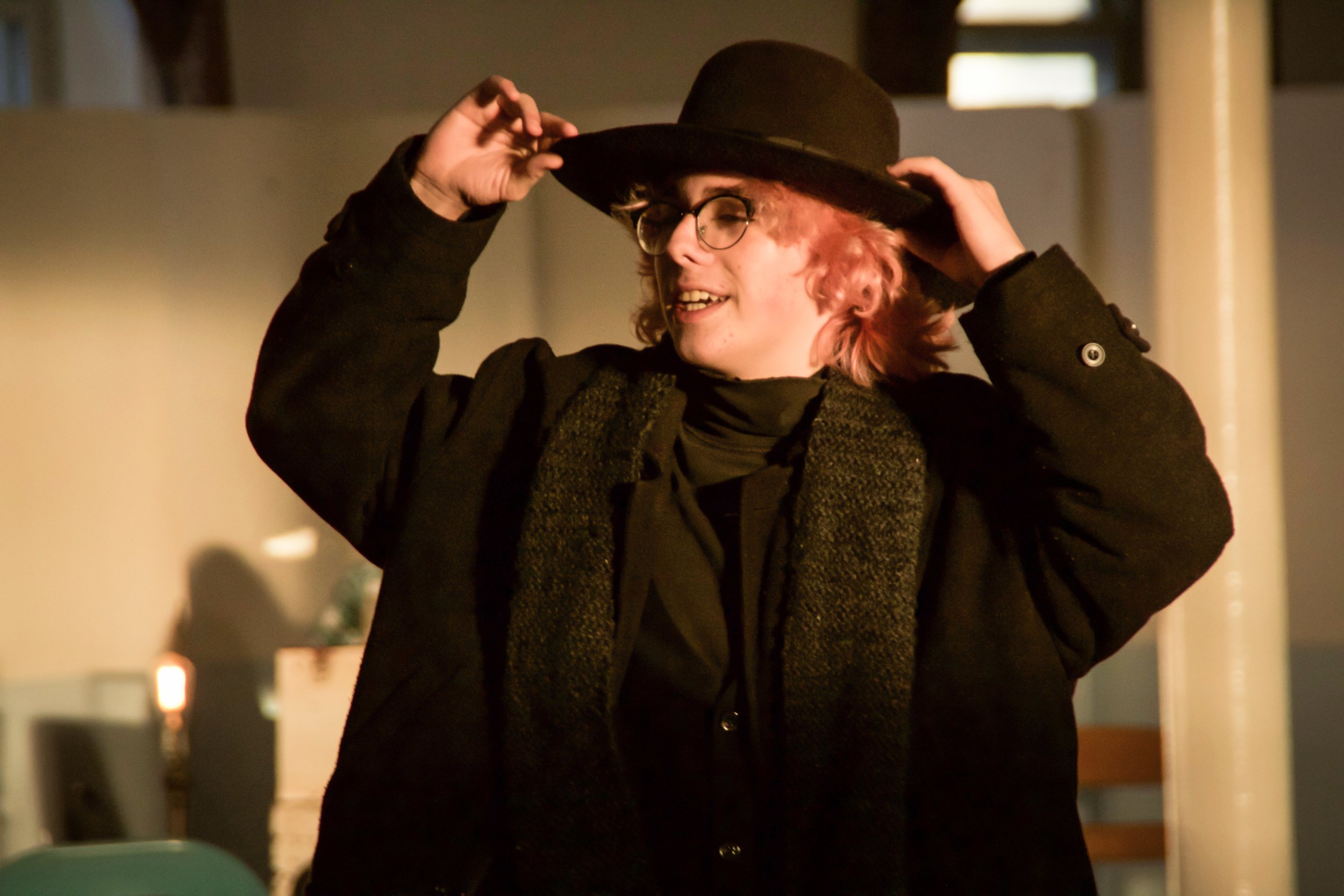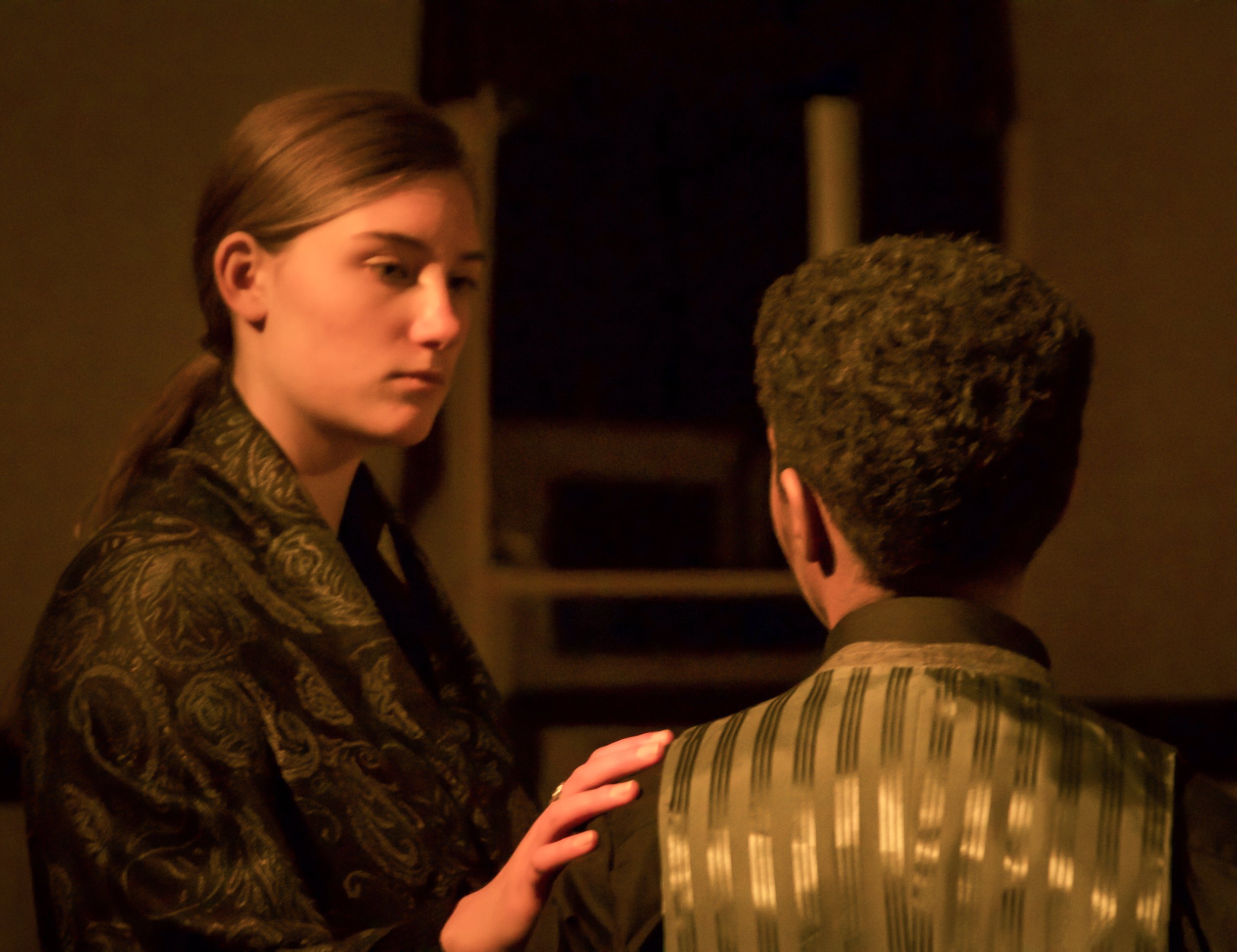Toil and Trouble: A Student Reflects on Playing Macbeth
By 12th grader Naomi
Having only done theater at Meridian twice before, I never thought that I would play a role as difficult as Macbeth. When I auditioned for the play, it was for practical reasons. Because I’m a senior, this year was my last chance to act in any Meridian productions, but the main purpose of my auditioning was to gain experience. I planned to direct the spring play, and I felt that the only way to be a good director was to know how it feels to be directed by someone else. And so, I went into auditions for Macbeth feeling perfectly at peace with any role I might get, no matter how small. When the casting was posted the following week, I realized that I had been given a role with tremendous responsibility.
With a line count in the upper 600s and a presence in all five acts, Macbeth was a technically daunting character. The number of lines was especially intimidating for me, and I spent many long nights learning them. At the time, it was beyond me how someone could memorize that many words. I had to approach the play in tiny bits, slowly piecing together each phrase and monologue until it finally came together in my head after months of practice.
Macbeth was also an emotionally taxing character to play. I had never before portrayed someone descending into a guilt-driven madness fueled by ambition. I had to work myself into hallucinatory frenzies, furious rages, tearful frustration, and a frightened delirium. After the opening performance I was completely drained, and I actually found myself crying a bit from exhaustion in the car.
“How can professional actors do this night after night for a month?” I asked myself. But the second night was much easier than the first. My head was clearer, and I felt less mentally exhausted afterwards. From this, I realized that to perform as an actor requires not a synthesis of false emotion, but a channeling of one’s own emotion into one’s character, as well as acclimating to playing them in front of an audience. Once I reached this point of comfort and openness, I felt both love and triumph towards a character that had at one point seemed impossible to play.
I went into Macbeth expecting to learn how to direct, which I certainly did. Working with Catherine and Nathan was an invaluable experience, and I gained a great deal of knowledge that will help me as I direct the spring play. What I had not anticipated was that I would learn so much about being an actor – and, despite the challenging nature of my character, I had a great time doing so! This is what truly made the production process so wonderful for me, and I am extremely grateful that I was able to participate.

